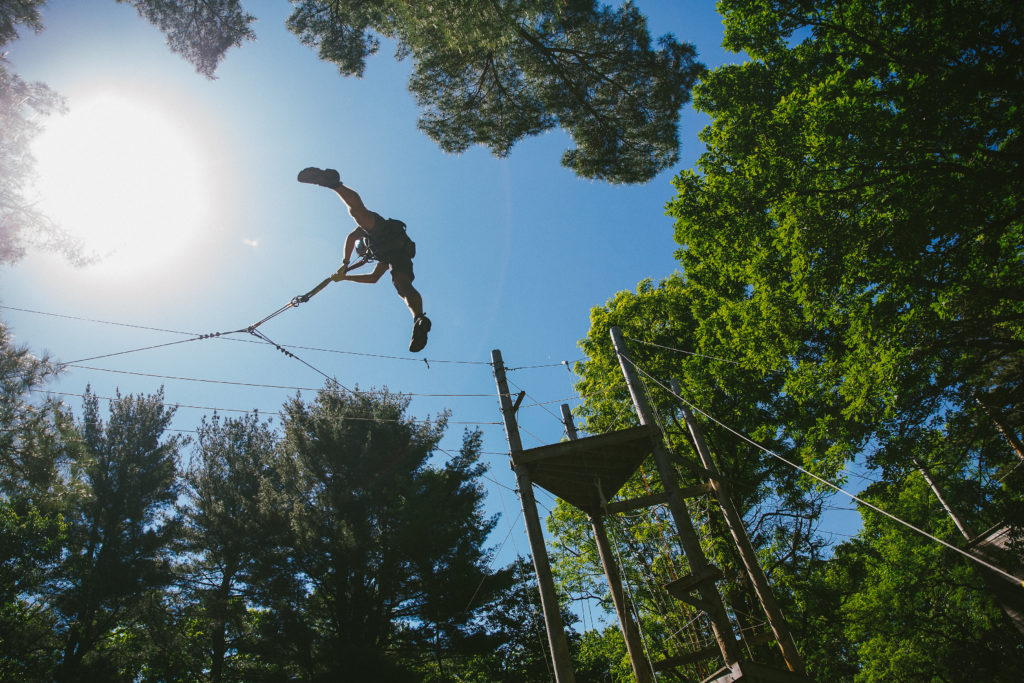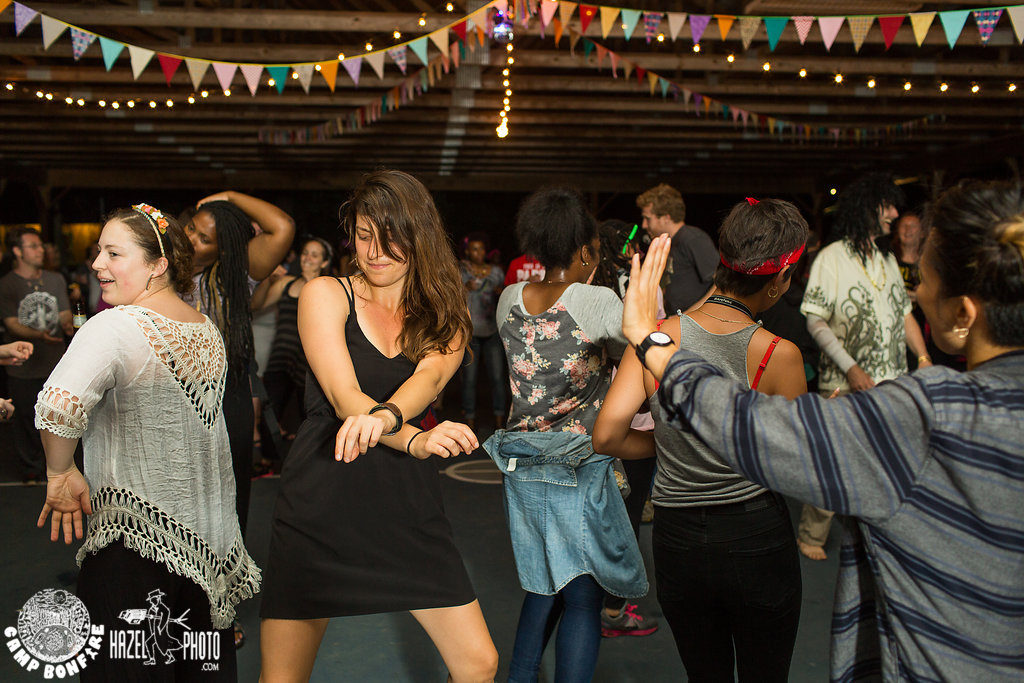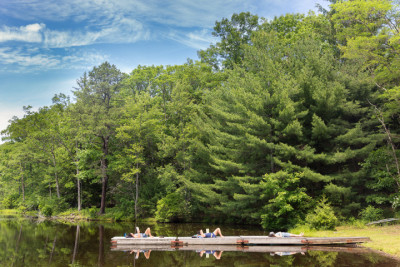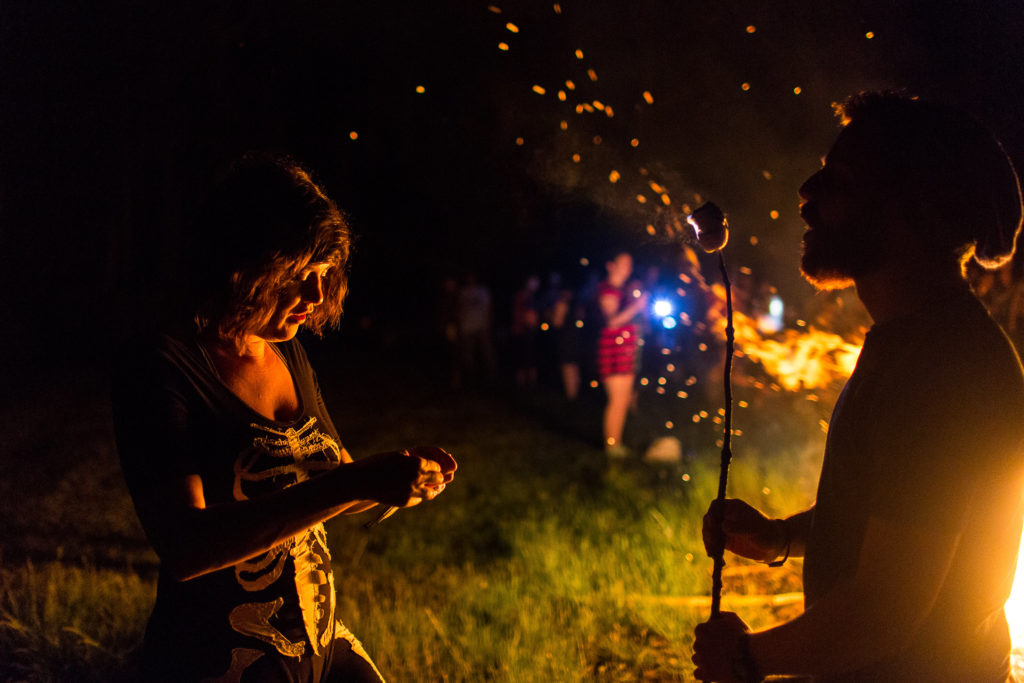Servant Leadership is my Jam*
“When we seek to discover the best in others, we somehow bring out the best in ourselves.” –William Arthur Ward
I am the Director of Logistics for Camp Bonfire, a summer camp for adults.
I organize, plan, oversee, and manage set-up, implementation, and pack-up of a weekend-long summer camp experience for adults in the Poconos. The co-founders and I plan all year, meeting weekly and working together to create this space for adults to experience fun, vulnerability, and connections with other people.
When I was studying sociology or receiving my master’s in theatre management, this is not how I imagined I would utilize my degree.

As a theatre stage manager, you not only learn how to make a killer excel sheet and organize time efficiently, but how to navigate personalities, how to implement creative ideas, how to collaborate, how to cultivate a space that is welcoming and supportive of introspection, imagination, and connection.
You are a servant leader**.
These are also exactly the skills I utilize in my role as Director of Logistics.
Dancing the Night Away

Melissa getting loose on the dance floor at Camp Bonfire, Summer Camp for Adults
One of the highlights of the camp weekend is the dance party. A dance party? you may ask…well, yes.
Setting up for the dance party includes, but is not limited to, some of the following:
— Lighting a basketball pavilion in a way that takes away the fact that it is, in fact, a basketball court;
— Setting up a photo booth area that is inviting and fun for adults with relaxation space utilizing only the materials we have on hand at the camp (i.e. wrestling mats, tarps, 12′ pieces of 1×6, etc);
— Making some sort of unique decorative statement each year that also serves as a space definer, keeping the dance floor tight enough to make a huge space feel like an intimate dance floor;
— Figuring out the spacial relationship between the phenomenal DJ lil’dave and the dancers and what a few feet can mean to the vibe of the room;
— Carefully thinking through signage and how much or how little to explain to campers;
— Placing the food, booze, hydration station, and campfire for s’mores in an appropriate location to promote conversation as well as keep the party intimate and not too spread out;
— Thinking through how sound travels on the grounds and how to minimize disturbing those campers who want to sleep early;
— Placing seating in areas that offer views of the dance floor as well as intimate conversational spaces;
— Allowing the crew (an amazing and talented crew!) to utilize their creativity, technical skills, and feel a sense of autonomy while accomplishing all of these goals.
We are just throwing a party, right? There is not that much thought that goes into it. FALSE. Every detail of how we move objects around camp and how we present each activity to the campers is designed to offer an experience that gives them permission to be vulnerable and feel supported. We are intentionally creating an environment where campers can practice being their best selves – and it is up to us (the logistics team!) to design that space.
Let me be clear here: in no way am I working alone or doing any of this by myself. This is a team effort and my job is to support and facilitate the creativity and talents of the team in place.
Practicing My Craft
So, where does the sociology and theatre management training come into play? Through each and every moment!
 As a sociologist (if I can brazenly refer to myself that way), I think about how people interact to space, objects, and one another. If the lights are set-up in straight lines, how might a camper respond to that physical definition of space? What if the lights are hung in a circle? What is the difference in reaction by a camper if we use red light versus warm white light? Does that change their response to the space? Does that promote a more welcoming space, a more fluid open space? And, what about the photo booth? If there is no signage explaining what is being asked of them, will they figure it out? Will they have a moment of “wait, what am I supposed to do? Eh, this seems too hard. I don’t understand.” If so, then we want to alter the space and help them not have to work so hard.
As a sociologist (if I can brazenly refer to myself that way), I think about how people interact to space, objects, and one another. If the lights are set-up in straight lines, how might a camper respond to that physical definition of space? What if the lights are hung in a circle? What is the difference in reaction by a camper if we use red light versus warm white light? Does that change their response to the space? Does that promote a more welcoming space, a more fluid open space? And, what about the photo booth? If there is no signage explaining what is being asked of them, will they figure it out? Will they have a moment of “wait, what am I supposed to do? Eh, this seems too hard. I don’t understand.” If so, then we want to alter the space and help them not have to work so hard.
And, the spectacular crew I’ve got working with me to help design and set-up this space – what do they need to do their very best? How can I offer them ownership of this dance party and its design? How can I make sure that their personality differences do not compromise the work that needs to be accomplished but, rather, enhances it? In what ways do I ask for their opinions and ideas while also managing the completion of what I know needs to happen in a matter of 6 hours?
The work as Camp Bonfire‘s Director of Logistics effortlessly translates to what I’ve done in the theatre. Working with artists who are creating performance pieces and necessitate an atmosphere that is judgment-free, open to new ideas and creativity, organized and efficient but allows for change and growth – that’s the job of a stage manager. Stage managers work to cultivate and facilitate a space that is open to vulnerability, connection, creativity, and to do it with efficiency and positivity. It turns out that the life of a camp logistics director at summer camp for adults and the life of a stage manager can be one in the same!
Life is art.
Everything I do, everything I touch, every moment I am working, I am trying to facilitate the opportunity for someone else to experience beauty – in whatever form that takes.
Camp Bonfire is exactly that – a place in which my job is not only to create this space for the campers, but to empower and assist my crew in finding the beauty in servant leadership. I find so much joy in this work and I am thankful to be a part of it.
Are you interested in joining the logistics team of Camp Bonfire? You can fill out an application here!

All Photo Credit: Paul Gargagliano
*In case you are unfamiliar, “my jam” as defined by Urban Dictionary (one of the greatest sources of fine intellectualism) is “used to describe any specific thing that you feel you enjoy more than the majority of other options in the same category.”
**From the Robert K. Greenleaf Center for Servant Leadership: “A servant-leader focuses primarily on the growth and well-being of people and the communities to which they belong. While traditional leadership generally involves the accumulation and exercise of power by one at the “top of the pyramid,” servant leadership is different. The servant-leader shares power, puts the needs of others first and helps people develop and perform as highly as possible.”
***This blog was previously published; however, full permission has been given to re-publish it here.

